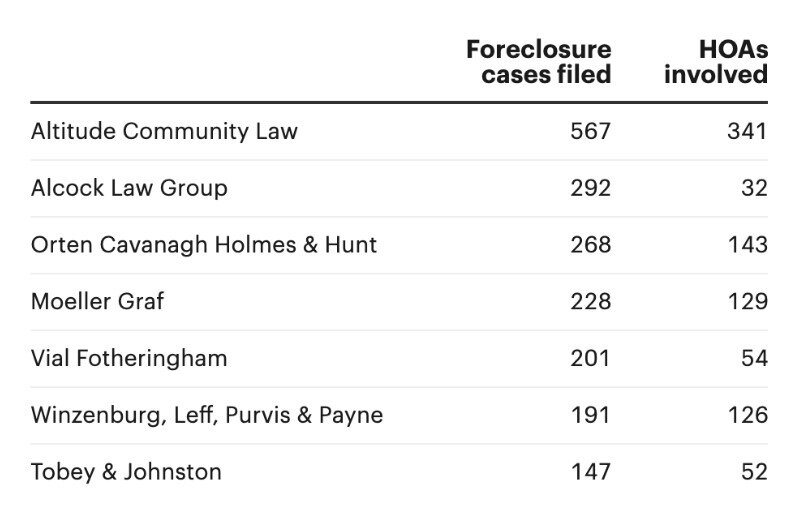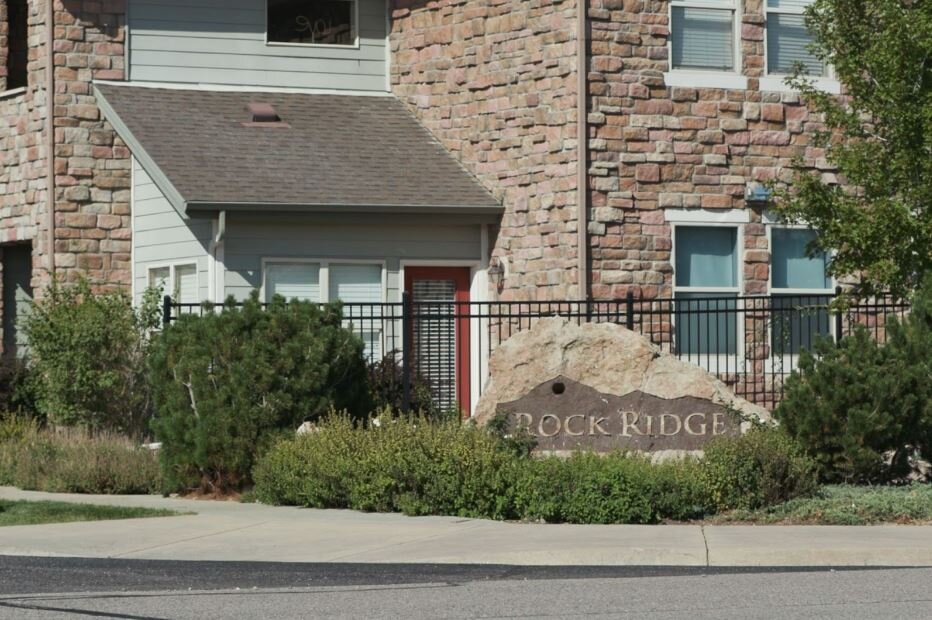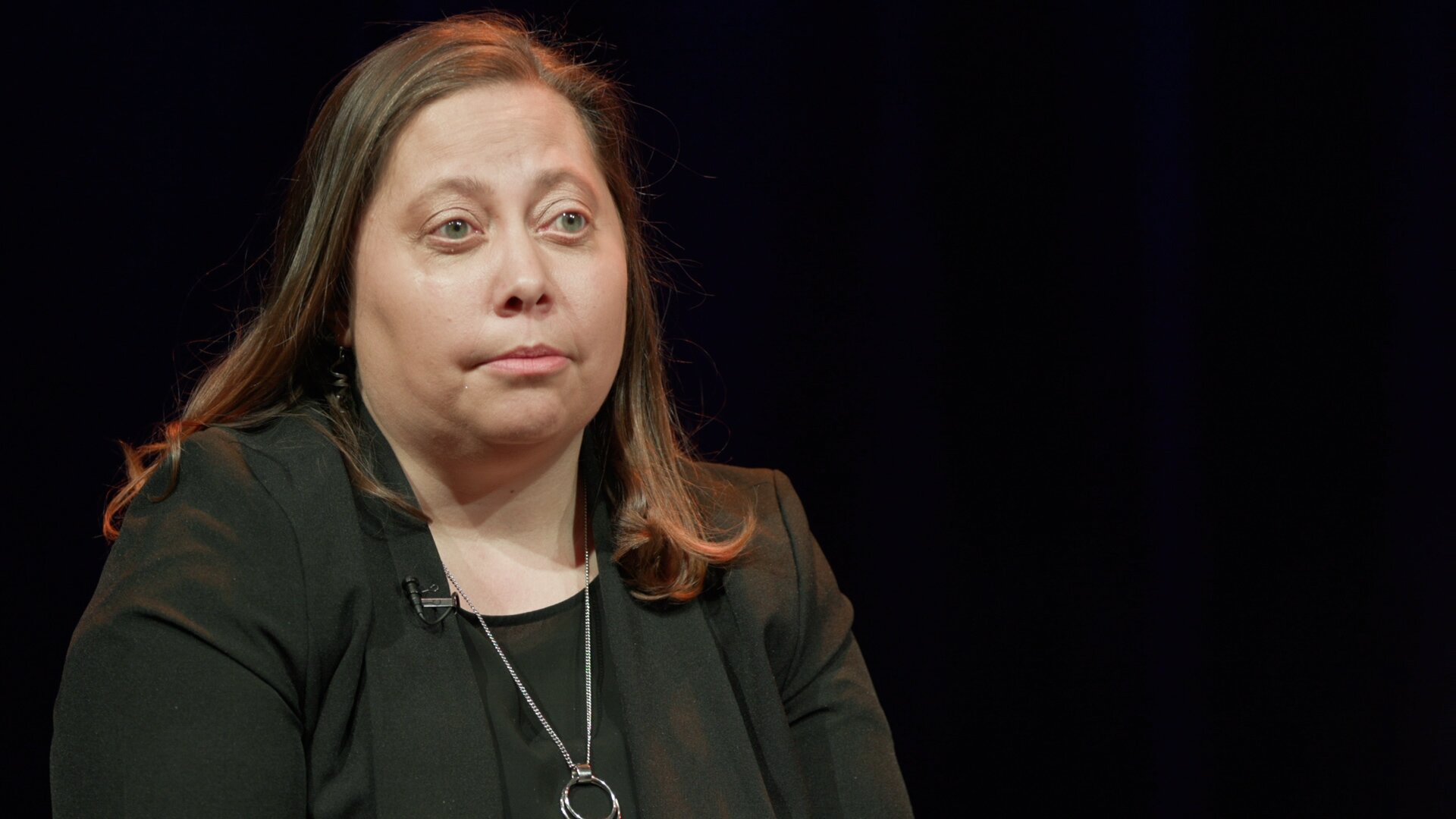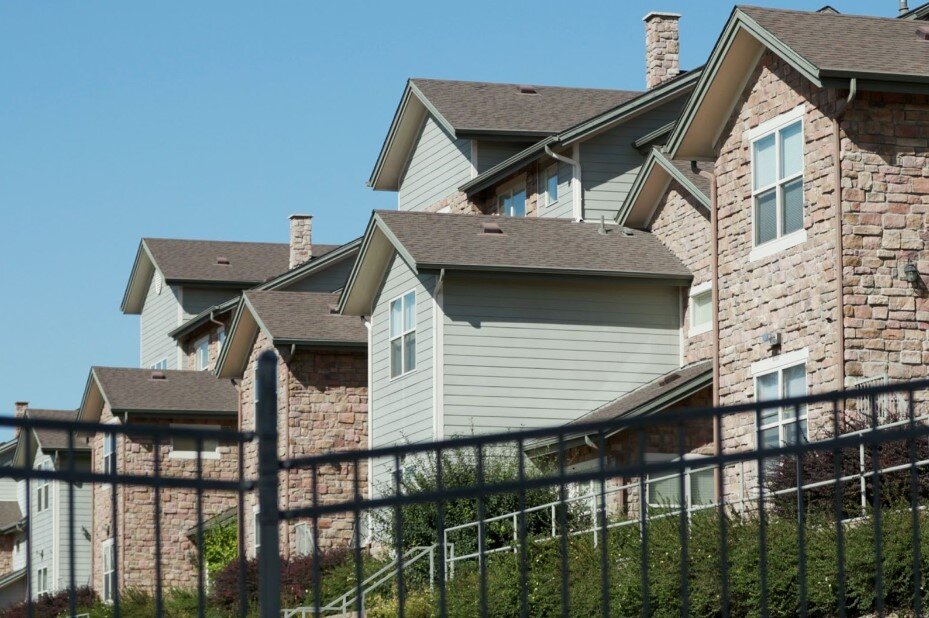The 'lose-lose' fight between an ex-Bronco and his HOA

This article was produced for ProPublica’s Local Reporting Network in partnership with Rocky Mountain PBS. Sign up for Dispatches to get stories like this one as soon as they are published.
Karl Paymah was on the clock.
A certified letter from the Rock Ridge Condominium Association in the Denver suburb of Aurora said he had 30 days to pay $1,515.45 in unpaid homeowners association dues and penalties — or face foreclosure.
After receiving the letter on Dec. 23, 2021, Paymah said he tried to pay the balance through the HOA’s website, as he had done in the past. But his account had been locked because it was turned over to the HOA’s collections attorney, Tammy Alcock. Next, he called Rock Ridge’s management company, which he said told him to discuss the matter with Alcock. But there was no answer when he called her office three times that afternoon. The office of Alcock Law Group was closed for the holiday.
“I can’t pay. I can’t pay through the portal. I can’t pay with the management company. I can’t pay with this attorney that they’re telling me to go through,” Paymah, a retired NFL cornerback, recalled thinking. “So I’m just sitting there.”
Turning the account over to Alcock meant that the association was asserting its right under Colorado law to charge him for the attorney fees it was incurring, causing his debt to grow rapidly.
By early February, when Rock Ridge began moving forward with foreclosure, the legal process of taking the home from its owner, Paymah’s debt had more than tripled to about $5,000, mostly because of legal costs.
Paymah’s experience is a case study in how even a small dispute can quickly escalate into an expensive legal fight in Colorado, where state law empowers HOAs to initiate foreclosure proceedings against homeowners who owe money to them. As Rocky Mountain PBS and ProPublica have reported, HOAs have filed thousands of foreclosure cases in recent years, in disputes stemming from as little as a $308 lien.
To file foreclosure cases, HOAs in Colorado often turn to the expertise of seven law firms that specialize in handling disputes with homeowners. From January 2018 through February 2022, each of the law firms filed at least 100 foreclosure cases on behalf of HOAs in Colorado, according to an analysis of state court data by Rocky Mountain PBS and ProPublica. One of the law firms with the highest number of filings is the Alcock Law Group.
Seven law firms each filed more than 100 foreclosure cases on behalf of Colorado HOAs over four years
Cases filed between January 2018 and the end of February 2022

Source: Analysis of state court data by Rocky Mountain PBS and ProPublica
Note: Foreclosure cases filed by HOAs were identified using a list of all relevant foreclosure cases in the state, which the news organizations searched for plaintiff names containing HOA-related keywords before manually reviewing the results. For more details, see our methodology.
Foreclosure litigation can be a lucrative business for law firms, which can reap thousands of dollars in attorney fees from each foreclosure case they help file. Critics say this system creates a perverse incentive for attorneys to advise the HOAs to file more foreclosure cases, rather than to find less expensive solutions.
Alcock Law Group said in a court filing that it represented about 50 HOAs and that a typical uncontested HOA foreclosure case generates between $4,000 and $6,000 in attorney fees. Alcock has filed more than 300 foreclosure cases since 2018, the analysis shows. Rock Ridge’s financial documents obtained by Rocky Mountain PBS and ProPublica show that the HOA has billed more than $76,000 in attorney fees and legal costs to delinquent residents — including Paymah — since January 2021.

The Rock Ridge Condominium Association has filed five foreclosure cases since the summer of 2021. (Jeremy Moore/Rocky Mountain PBS)
State Rep. Brianna Titone, an Arvada Democrat, has long argued that the state needs to do more to keep HOA disputes out of court, pointing out that, in these cases, attorneys always win.
“Whatever dispute happens, the HOA attorneys are the ones that are always reaping the benefit,” Titone said. ”They get paid by both parties, basically.”
Alcock and two of the other six law firms, Tobey & Johnson and Vial Fotheringham, did not respond to questions for this story.
Representatives from the other four law firms told Rocky Mountain PBS and ProPublica that foreclosure is typically “a remedy of last resort” and represents just a fraction of debt-related matters that they handle on behalf of HOAs.
Jeffrey B. Smith of Altitude Community Law said his firm, which represents about 3,000 HOAs, doesn’t “push associations towards foreclosures except in those few cases where other options have proved futile.”
Hal Kyles of Orten Cavanagh Holmes & Hunt said profit motives do not play a part in how his firm handles HOA-related cases. “Issues of monetary return are no factor in recommendations to foreclose and would be a violation of my ethical obligation to act in the best interests of my client,” he said.
Meanwhile, Paymah, who has lived in Colorado since being drafted by the Denver Broncos in 2005, decided to do what other homeowners facing foreclosure rarely do: fight the HOA.
Paymah’s legal strategy centered on challenging attorney fees that he considered exorbitant and unjustifiable. “I felt bamboozled,” Paymah said, noting how quickly his debt grew. “I felt like somebody was trying to take advantage of me.”
When the case went to trial in August, the HOA defended its action, casting the whole dispute as being of Paymah’s own making.
“The facts here are absolutely undisputed that Mr. Paymah was delinquent in payment of assessments,” said Alcock, who presented the mounds of correspondence that the HOA’s management company had sent to Paymah notifying him of his delinquencies.
Alcock also noted that, if a series of unpaid dues like Paymah’s were allowed to go uncollected, it could ultimately lead to serious harm to the neighborhood.
“There are many, many … examples where associations have large delinquencies, don’t collect assessments, and aren’t able to properly take care of the community and ensure safety of the residents,” Alcock said.
In his testimony, Paymah, whose company bought the Rock Ridge condo in 2018 as an investment and has since rented it out, admitted that he had not been as attentive to property-related matters as he should have been for several years, as he dealt with a custody dispute over his son.
But Paymah said he had already caught up on his unpaid dues and penalties before trial, paying about $3,600. What was keeping the case from being resolved, he said, was attorney fees.
In the end, Judge Paul King ruled in favor of Paymah’s main argument, agreeing that the court should review the reasonableness of attorney fees, which ballooned to about $50,000 after the trial concluded.
But it was a pyrrhic victory for Paymah. After reviewing attorney fees and legal costs, King ordered Paymah to pay $25,774 to avoid foreclosure — far more than he would have paid had he never mounted a legal challenge in the first place.
Paymah said homeowners like him face a “lose-lose situation” in a dispute with their HOA. “It’s almost like you have to lay down … and just let them do whatever they want. I can’t really advise anybody to do that,” he said. “And then your latter alternative is what? Get a lawyer and spend a bunch of money.”
When Nicole Plybon moved to Rock Ridge in 2004, the community was brand new. Then came what she called a “slow dilapidation.”
“Shingles were blowing off the roofs, the stone was falling down, the sidewalks were all cracked up, the gutters are pretty much smashed,” Plybon said. “Just a lot of problems starting to accumulate on one another.”
This common infrastructure is the responsibility of the HOA, and its upkeep is funded by the monthly dues paid by every owner in the community.
When the pandemic hit in 2020 and residents were staying home more, they began asking questions to the management company, which had run the community for more than 13 years, and to the HOA board, which they said rarely held meetings.
A group of residents decided to organize and eventually voted out the board and brought in a new group, which included Plybon. The new board quickly replaced its management company and started taking on projects to improve the community.
Soon Plybon and other board members realized that their predecessors hadn’t built up enough savings to cover future maintenance needs. This led to their decision to raise the community’s monthly dues by 48% last year, making payments that used to be as little as $178 to jump to $264.
“Unfortunately, we had to be the bad guys on the board,” Plybon said. “We had to start thinking about a five-, 10-, 15-year plan, where that was never done in the past.”

Nicole Plybon, a former member of the Rock Ridge HOA board, said the community needed to build up enough savings to cover future maintenance needs. (Jeremy Moore/Rocky Mountain PBS)
In addition to raising dues, the HOA began cracking down on delinquent homeowners, filing five foreclosure cases starting in the summer of 2021.
All five cases reached resolutions that allowed homeowners to avoid foreclosure, and they were resolved without much delay — except for one: Paymah’s case.
That legal contest stretched on for about a year, and all the while the HOA’s board members assumed that Paymah would eventually be held responsible for paying attorney fees and legal costs.
But King reduced what Paymah owed the HOA in attorney fees and legal costs by more than $30,000 on several grounds, finding that Alcock had charged for some tasks that could have been handled by a paralegal and billed more time than was likely necessary for certain tasks. He also struck some of the fees resulting from Alcock’s work on the HOA’s allegation that Paymah had put his property under his business’ name in an attempt to defraud the association, ruling that the association did not prove its case.
The attorney fees that Paymah didn’t have to pay are now being shouldered by Rock Ridge residents. Current and former HOA board members told Rocky Mountain PBS and ProPublica that they felt caught off guard by King’s ruling.
“You get people who just want to help their community on a board. But most of the time, we’re not educated about bylaws and all that stuff, much less the implications of laws,” current board member Trish Westin said.
Former board member Erik Elisary said he found it frustrating that the HOAs have few options. “What other avenues does the HOA have to get the homeowner to pay?” he said. “Any time the homeowner is causing the HOA to have to spend attorney’s fees, they should be the responsibility of the homeowner.”
For his part, Paymah pointed out during the trial that there was another way to solve a dispute like this, citing a lawsuit filed against him by a different HOA for $1,438.85 in unpaid dues and late fees.
In that case, court records show that attorney fees and legal costs were kept to a minimum — about $815 — in part because the other HOA had opted for the less expensive tactic of seeking a judgment in county court, rather than seeking foreclosure in district court.
Paymah testified he was able to work with the HOA to keep the dispute from escalating. “I called and explained it,” he said. “So I made it current. … [A] similar situation, but that was just handled a different way.”

Rock Ridge’s HOA has billed more than $76,000 in attorney fees and legal costs to delinquent residents since January 2021, according to financial documents obtained by Rocky Mountain PBS and ProPublica. (Jeremy Moore/Rocky Mountain PBS)
Advocates for homeowners in HOAs have also been backing a number of other ideas for keeping housing disputes from resulting in exorbitant legal bills.
During last year’s legislative session, lawmakers considered one such idea as part of an HOA foreclosure reform measure. The measure, which prevents certain types of HOA foreclosures and requires more notification and longer payment plan before initiating a case, passed in May.
But a provision that would have limited the amount of attorney fees that HOAs could recover was dropped before the measure’s approval.
State Rep. Naquetta Ricks, an Aurora Democrat, said the move was a concession made during negotiations with HOA industry representatives. She acknowledged that unchecked attorney fees remain a problem for homeowners but has not offered any bill during the current legislative session to address the issue.
“It is like a blank check, in my mind, that’s been given to these HOA lawyers,” Ricks said. “There’s no dispute resolution process for homeowners. The only way to do this is to go to court.”
HOA homeowner advocate Stan Hrincevich, who runs Colorado HOA Forum, an online resource for homeowners, said his top priority for many years has been to empower a state agency to resolve disputes between homeowners and their associations, with a goal of keeping them from going to the court in the first place.
“Folks, don’t go to court. It’s not a great place for justice,” Hrincevich said. “Can you imagine how much this is costing homeowners every year?”
Titone, the state representative, said an out-of-court dispute resolution process is also one of her top priorities, but she has no current proposals to create such a process. She said the HOA industry’s lobbying has prevented such efforts from moving forward in the past.
“You need to have somebody be able to say, ‘Why do we need to go to expensive court here? You owe $2,000,’” Titone said. “There should be a more civil way to do it than doing it this way.”
HOA attorney David Graf said he supports the intent of Hrincevich and Titone’s proposal, but he is concerned about the costs that HOAs could still incur in such a process.
“I love the idea of having someone who can resolve these complaints without having to go to court, but I'm not sure if substituting a state officer as the judge of this issue is any better than where we are now,” Graf said.
Rock Ridge board members said they think a dispute resolution process would be helpful in avoiding what they’ve experienced — both in their efforts to catch up on overdue maintenance in 2020 and their efforts to collect delinquent debts since.
“There have to be other states we can model something better around to protect the homeowners,” Rock Ridge board member Nick Losito said.